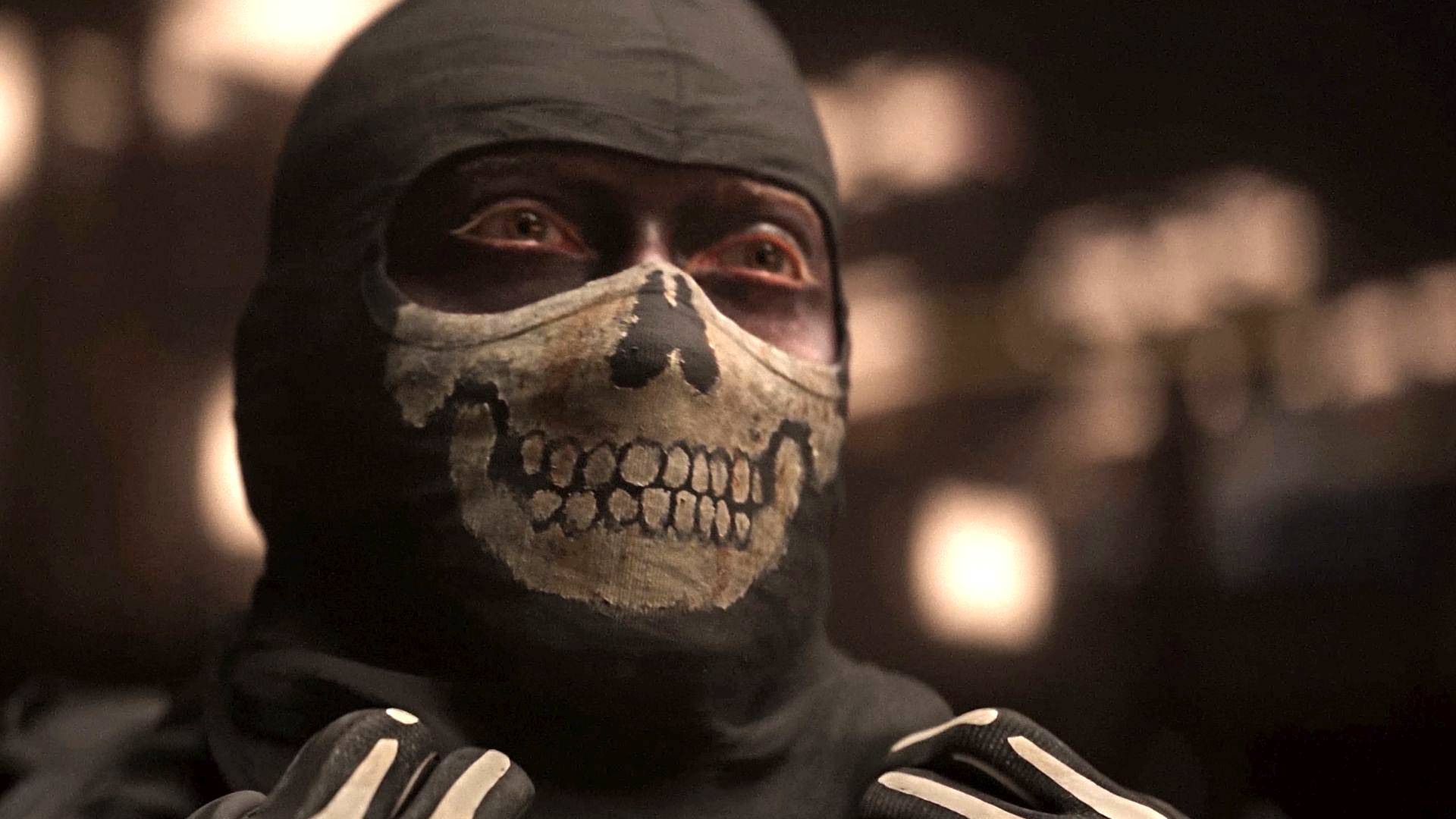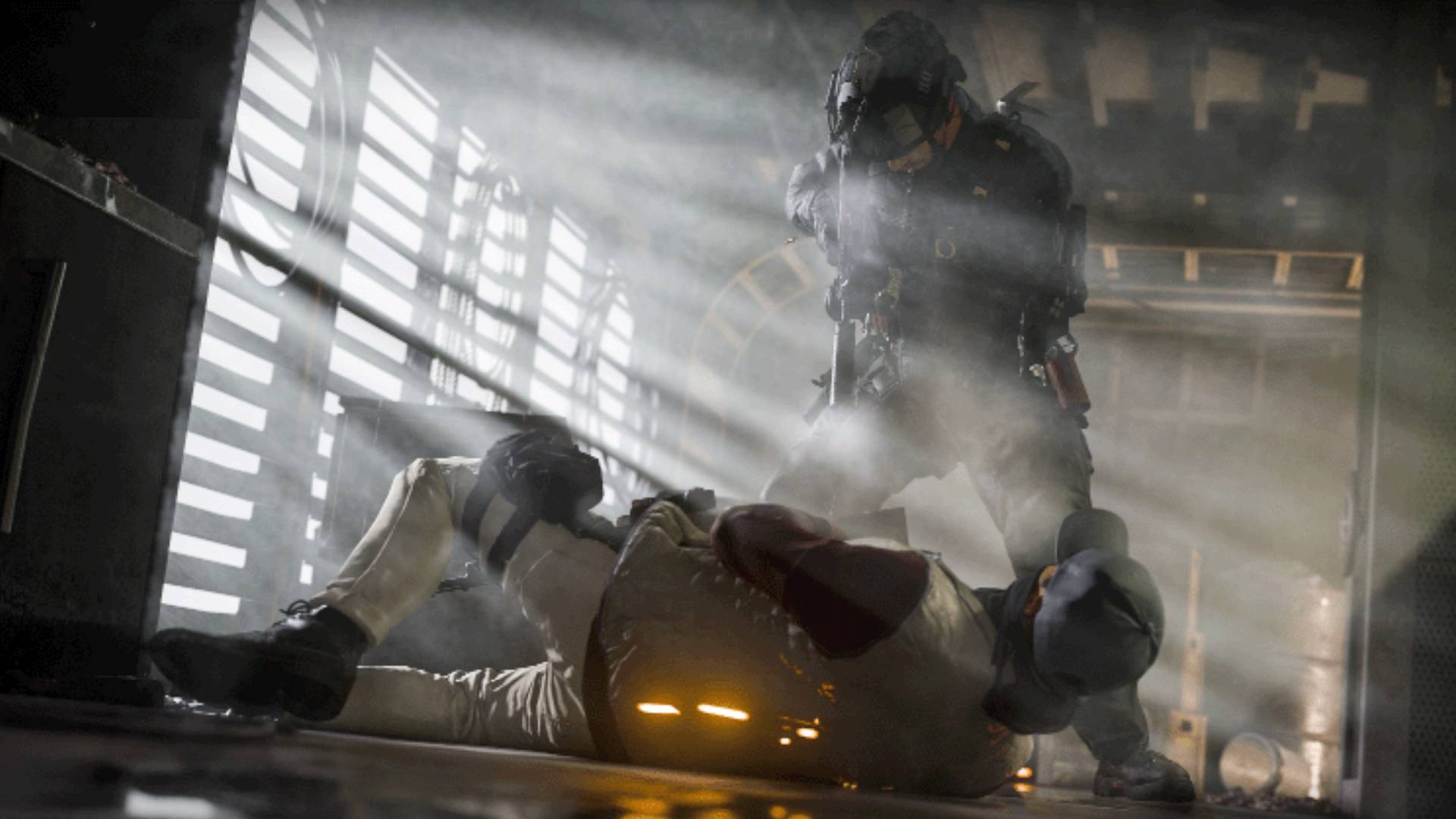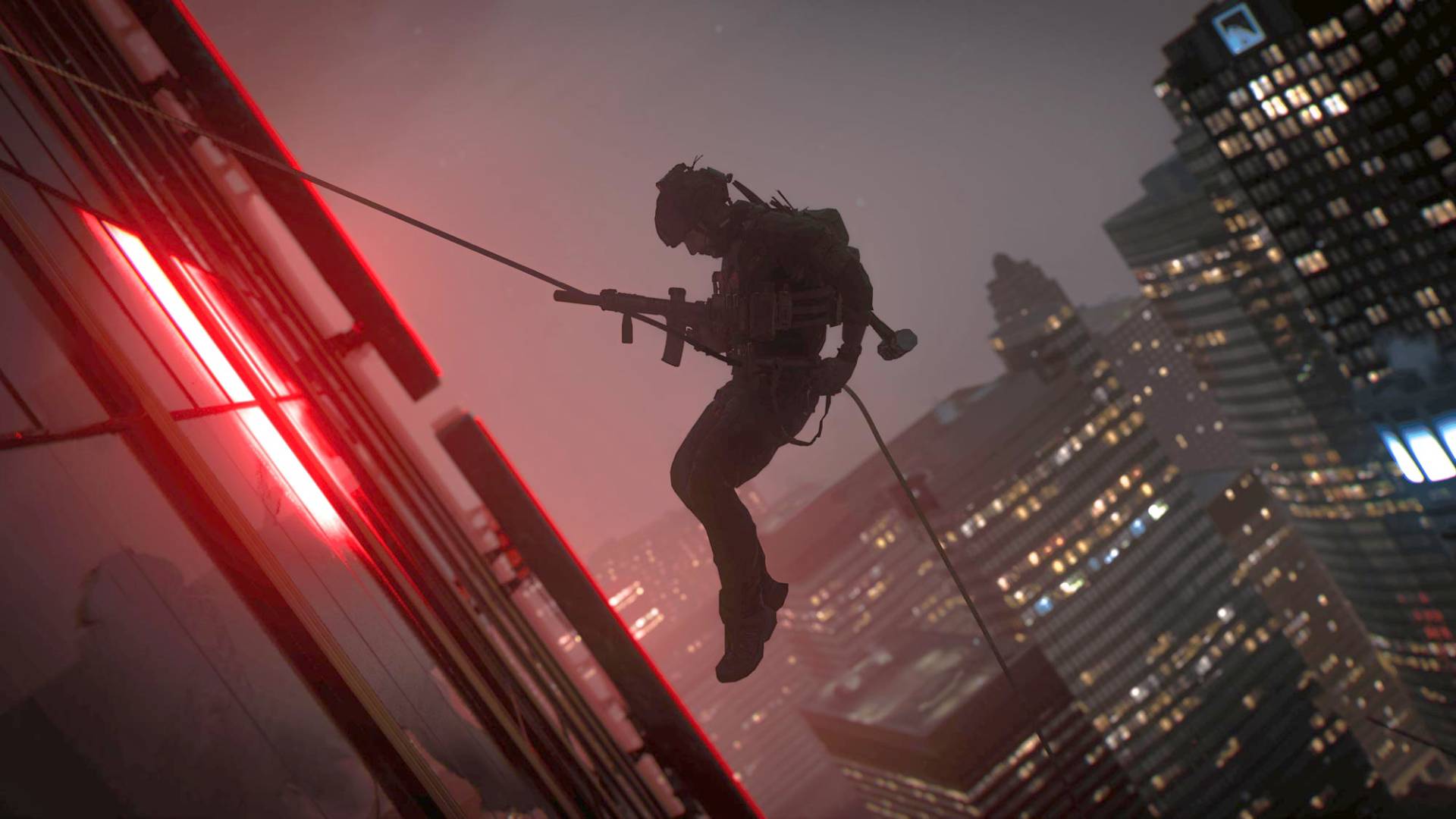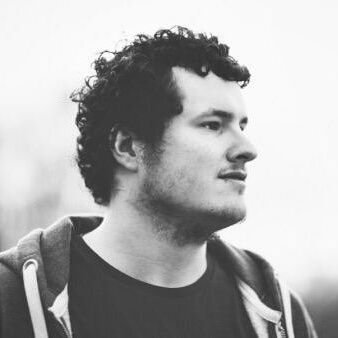Modern Warfare has great characters, but Ghost isn't one of them
Phantom pain

There’s a moment late in Modern Warfare 2’s campaign when, in preparation for an unsanctioned attack on an American private military company, Simon ‘Ghost’ Riley tips a bag of balaclavas onto the briefing table – like a purveyor of knock-off band merch outside a gig venue. Each hat is painted to resemble the lower half of a human skull.
“This is a fight against our own,” snarls Captain Price, by way of explanation. “We’re not 141 and Los Vaqueros on this. We’re a team. Ghost team.”
Reader, I groaned. It was as if, after sucking the air out of half the dialogue in the campaign, Riley’s personality vacuum had finally subsumed every other character in the story. As if Call of Duty had been swallowed up by its most tedious hangover from the noughties. A jumped-up multiplayer skin drawn by a 12-year-old. A headsock in place of a human being. The edgelord prince. Now cover star of Modern Warfare 2.
Price is right: the mask really is all it takes to become Ghost – because there’s nothing else going on behind that mesh of sweat and cotton. I know so, because I’ve played through every new campaign mission that attempts to humanize Riley through gruff cockney conversation. He tells jokes (“What has two legs and bleeds? ‘Alf a dog”). Offers practical advice (“Keep your blood in, you’ll need every drop”) and wounded philosophy (“People you know can hurt you the most”). Yet despite his central place in the script, he utterly fails to endear or expand into more than two dimensions. The man is a balloon with a hole in it. At least Soap, the other half of Ghost’s double act and himself more mohawk than man, has creative swearing going for him.
Face off

The problem is that Ghost was born in an era when COD didn’t have personalities – by design. Infinity Ward conceived the original Modern Warfare trilogy as a kind of first-person shock cinema. You never knew what might happen to you when you dove into a new body. Perhaps you’d spend five minutes as a president before your public execution; take on the perspective of a serviceman burned up in a nuclear bombing; become the fall guy for an airport terrorist attack. The job of the character behind the camera was to keep shtum, so as to let you inhabit them completely. And the job of the characters accompanying you was to direct your attention to the next set piece. Ghost’s job was to do the latter, and then to die, providing personal motivation to go after a traitor in the third act of the original Modern Warfare 2. Nothing more, nothing less.
Just as Daft Punk and Deadmau5 instantly lose any intrigue the moment they take off their helmets, there’s no payoff to be found in losing Ghost’s balaclava
As such, the current round of Call of Duty reboots has inherited a few one-note figures from that time. There’s nothing wrong with nodding to the past, of course, but it’s small wonder these revived soldiers offer little for writers to work with. The narrative team behind the new Ghost seems determined to wring intrigue from the mask itself, teasing its removal while keeping Riley’s face off-camera. But this, frankly, is international DJ syndrome: just as Daft Punk and Deadmau5 instantly lose any aesthetic intrigue the moment they take off their helmets, there’s no payoff to be found in losing Ghost’s balaclava. As Minecraft fans can attest, a face reveal isn’t quite the event you think it will be.
Activision has made the mistake of trying to flesh out Ghost before. Back in 2009, it produced a short comic book series starring Riley. Here’s his backstory, exactly as it appears on his Fandom page:
Get daily insight, inspiration and deals in your inbox
Sign up for breaking news, reviews, opinion, top tech deals, and more.
“Simon Riley had a very traumatic childhood while growing up in Manchester, England, because of his heartless father. On most days, his father brought dangerous animals back and taunted him with them, even going so far to force him (sic) to kiss a snake or threaten to kill him with them. When he and his younger brother Tommy got older, Tommy would always wear a skull-mask at night to scare Simon. Simon's father would sometimes take him to the Bone Lickers concerts. At one concert, his father made him laugh at the death of a prostitute who was addicted to drugs.”
Makes you think. Or more precisely, makes you think that Si might not be a blank page awaiting the next great American novel after all.
Hollowed out

Over the past half a decade or so, Infinity Ward had been drawing decent characters even within the bounds of its geopolitical thrillers
It’s only Call of Duty, right? Who cares about the stories in these things anyway? Well, that’s the root of this frustration. Over the past half a decade or so, Infinity Ward had been drawing decent characters even within the bounds of its geopolitical thrillers. 2019’s Modern Warfare, for instance, managed to stuff its breakneck adventure with meaningful, personal strife. 141 recruitee Gaz struggled with the moral cost of riding along with Captain Price; rebel fighter Farah with giving up on her brother for the sake of her principles; and CIA operator Alex with finding a cause he could actually believe in. All reached various forms of resolution, making the campaign more than the sum of its set pieces.
Very few of the equivalent beats in Modern Warfare 2’s campaign hit the same way – and an awful lot of them are devoted to ol’ Simon. In fact, the Ghost Team is a disquieting echo of Call of Duty: Ghosts, the dreary 2013 entry that starred, yep, a group of special forces soldiers wearing skull balaclavas and found Infinity Ward at its most creatively bankrupt.
Now, as then, the studio is fresh from losing two key figures in its leadership: narrative director Taylor Kurosaki and design director Jacob Minkoff. I can only hope that it learns from that previous period of rudderlessness and manages to course-correct for Modern Warfare 3. To that end: please, Infinity Ward, let Ghost rest.

Jeremy is TRG's features editor. He has a decade’s experience across publications like GamesRadar, PC Gamer and Edge, and has been nominated for two games media awards. Jeremy was once told off by the director of Dishonored 2 for not having played Dishonored 2, an error he has since corrected.